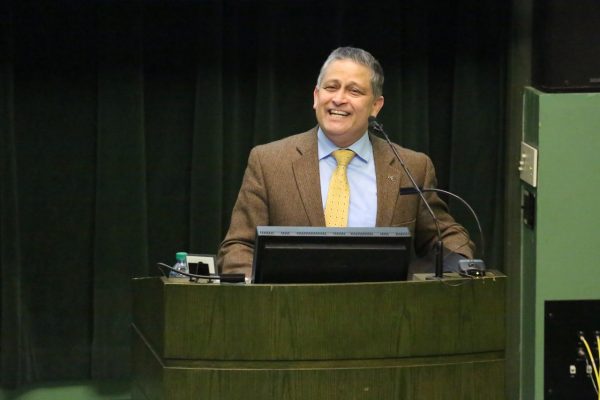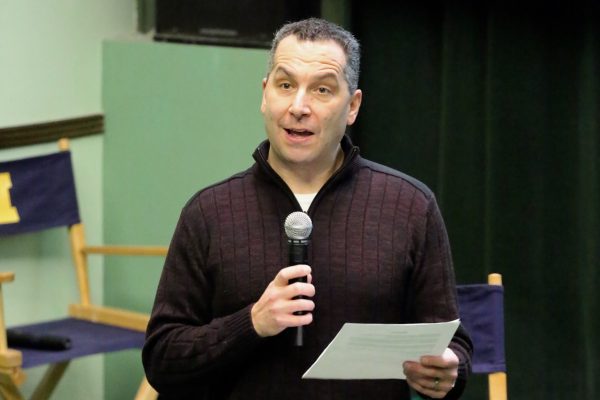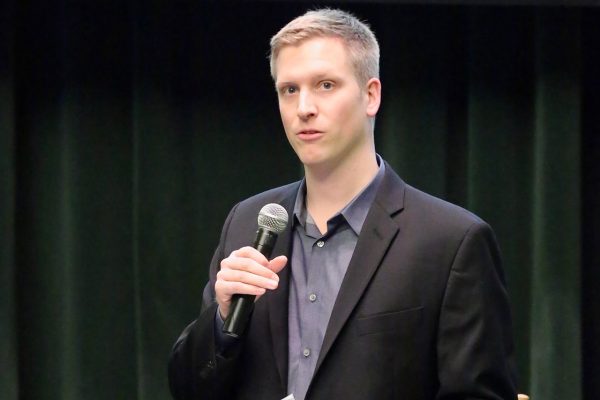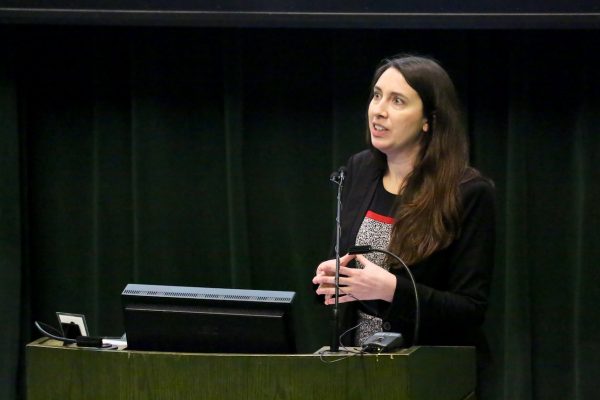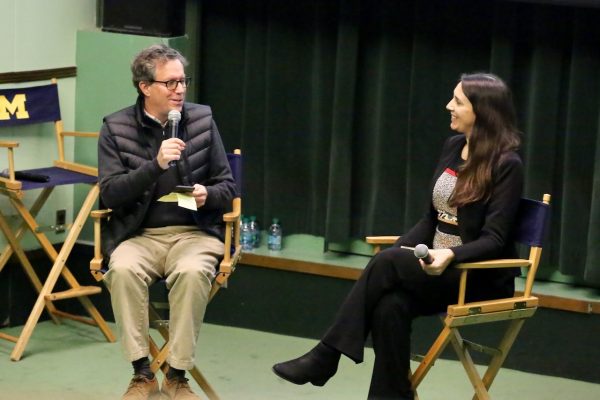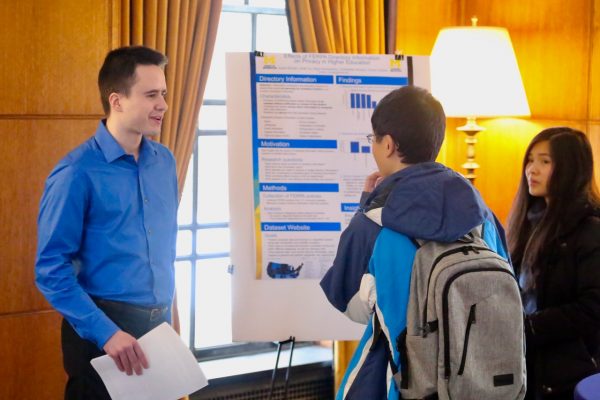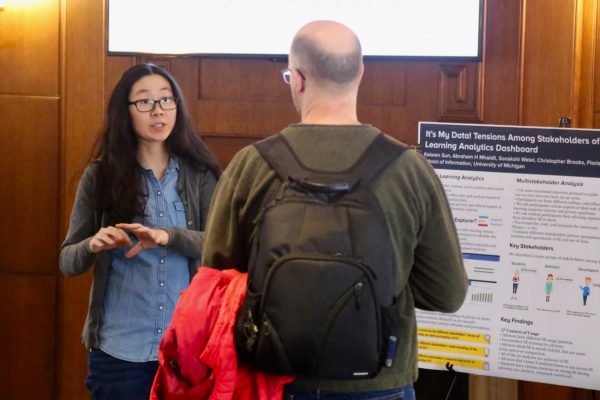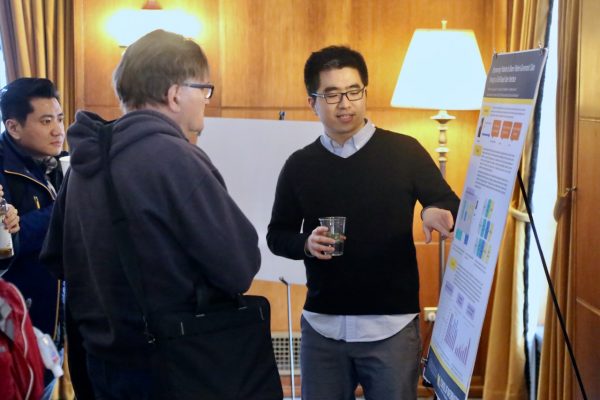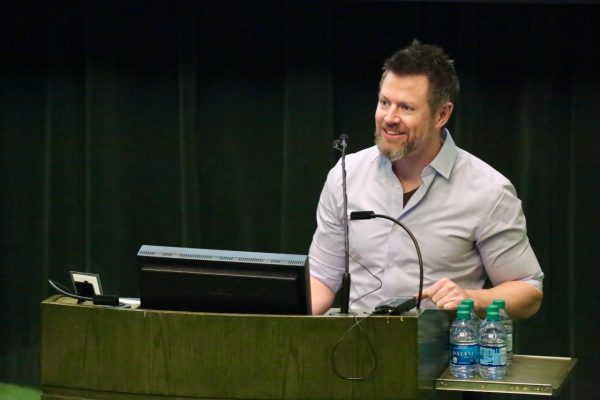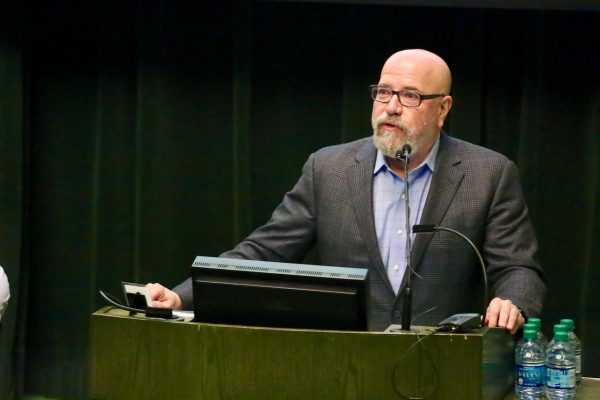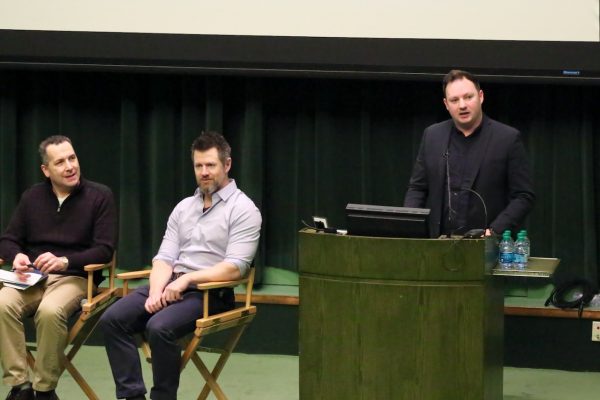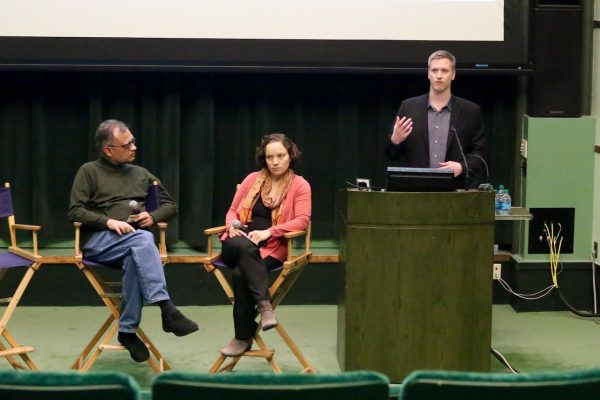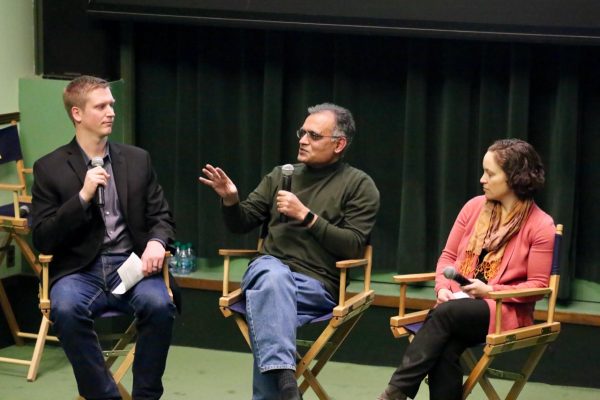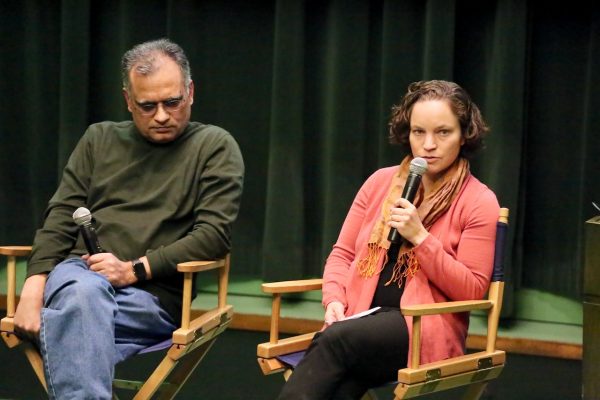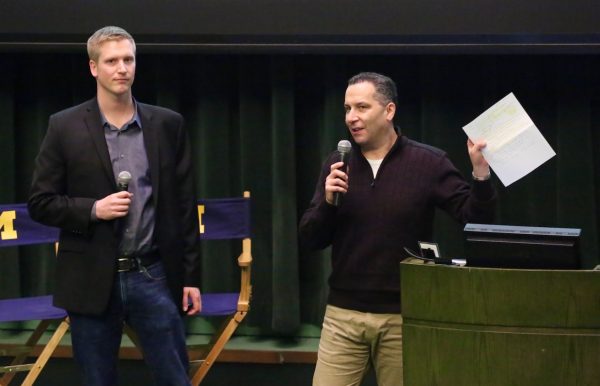A hardy group of about 40 attendees braved the snow to celebrate International Data Privacy Day January 28 at Privacy@Michigan 2019 at the Rackham Building on the Ann Arbor campus. In addition to the in-person attendees, about 160 others joined online. The annual event, hosted by the University of Michigan School of Information and U-M Information Assurance, brings together faculty, researchers, students, and staff for multidisciplinary conversations about privacy’s role in society.
Ravi Pendse, U-M vice president for IT and chief information officer, kicked off the afternoon event by noting the importance of privacy, and how proud he is of the work members of the U-M community do to protect data.
“We take privacy very, very seriously,” said Pendse. He encouraged the event attendees to step up and teach others about data privacy and security. “It’s going to require all of us, with thoughtful effort, to keep our data secure and private,” he said.
We take privacy very, very seriously. It’s going to require all of us, with thoughtful effort, to keep our data secure and private.
—Ravi Pendse, U-M VP for IT and chief information officer
U-M alum and keynote speaker Sarah St. Vincent, a researcher and advocate with Human Rights Watch, described her work this way: “I try to make sure the government complies with our constitutional rights.” She added, “Any information about us has the potential to be abused, and needs safeguards.”
In some of her remarks, she looked at the Fourth Amendment to the Constitution—which addresses the right be free from unreasonable searches and seizures—and its impact on individual privacy. She then participated in a conversation with Thomas Finholt, dean and professor, School of Information (SI).
Any information about us has the potential to be abused, and needs safeguards.
Sarah St. Vincent, Privacy@Michigan keynote speaker and Researcher/Advocate at Human Rights Watch
Five scholars, a privacy expert, and a journalist took part in two multidisciplinary panel discussions:
Privacy in public spaces: What is public in the digital age?
Sol Bermann (moderator) chief privacy officer, interim chief information security officer; David Jurgens, assistant professor, SI; Len Niehoff, professor, Law School; and A.J. Vicens, Knight-Wallace Fellow, Mother Jones reporter.
A foundational principle of privacy law in the United States has been that your privacy rights depend on whether you have a reasonable expectation of privacy. What does that mean in a world of drones and doorbell cameras and dash cams and body cams and cameras on everybody’s everything—on our phones, GPS, Internet of Things, pervasive technology in seemingly every corner of our lives?
—Sol Bermann, chief privacy officer, interim chief information security officer
We value your privacy: Privacy technology in practice
Florian Schaub (moderator), assistant professor, SI and College of Engineering; Sarita Schoenebeck, associate professor, SI; and Atul Prakash, professor, College of Engineering.
We need to integrate privacy information into how you interact with technology. Information needs to be actionable.
—Florian Schaub, assistant professor, SI and College of Engineering
During breaks and a reception that followed the event, attendees viewed posters as part of a Research Showcase, and students helped answer attendees’ privacy questions. They were also invited to share their thoughts about privacy in six words, as part of the U-M Privacy Card Project, and see what others have shared.
The event was live-tweeted by @umichTECH and @umsi among others, live-streamed, and recorded (Privacy@Michigan 2019 recording). A copy of the recording with closed captions will be posted on Safe Computing as soon as it is available.

